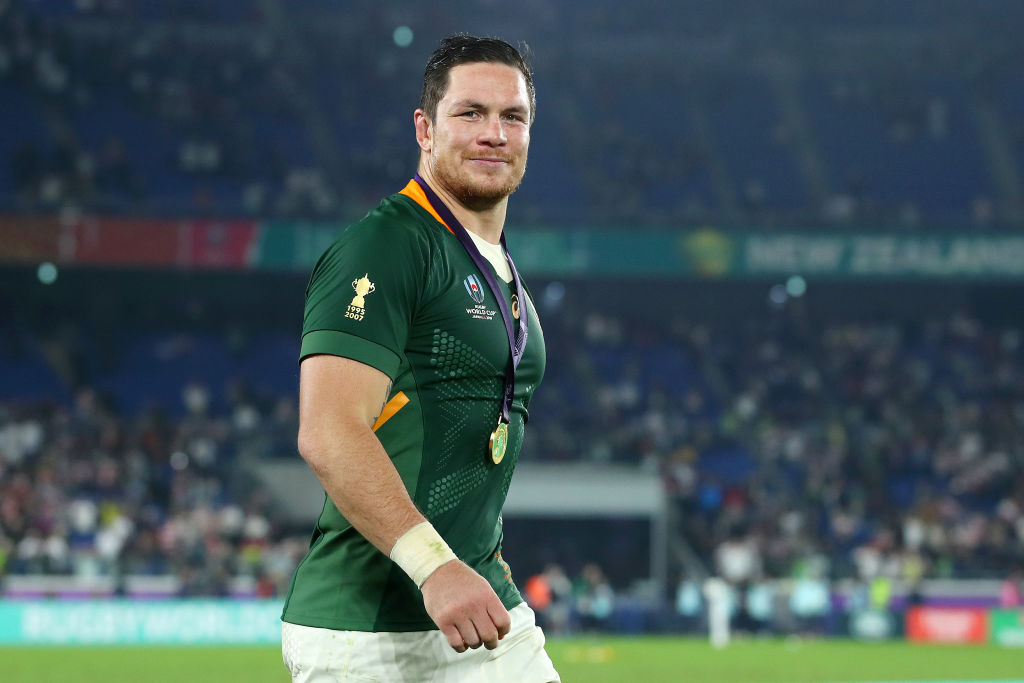
After nearly 400 games for club and country, South Africa and Bath star Francois Louw has called it a day. The World Cup-winning back row offers NEALE HARVEY his views on his career, the state of world rugby and what the future holds for himself and Bath.
How do you reflect on your career?
It really was the fairy tale journey. Being a young South African boy with hopes of playing professionally, playing for Western Province was the initial dream. I achieved that in my second year out of school and the rest is history.
Rugby has taken me to the UK, where I’ve fallen in love with Bath and spent the most time at one club, and as a family we’ve thoroughly enjoyed our time here. To play for a club like Bath with all its history and heritage, everything has been awesome.
Obviously, I wish we could have taken the Premiership title when we reached the final in 2015. It wasn’t to be but I really am retiring with a full and content heart. That year was particularly disappointing because South Africa lost a World Cup semi-final by two points to New Zealand as well, but I got my winner’s medal last year in Japan and it’s the right time to hang up my boots.
To cap things off that way against England in Yokohama after losing your opening game to New Zealand, how do you assess that World Cup now?
We approached that opening game with a realistic attitude. South Africa are not optimists, we don’t pre-write the story, so before that match we’d spoken about the possibility of losing.
The reality is you only have to be top two to get out of your Pool and although we were down and disappointed to lose to New Zealand, we got ourselves together pretty quickly and, with respect, we had a few easier games in our Pool against Namibia, Italy and Canada that helped us build momentum before we faced our nemesis from 2015, the Japanese.
We managed to beat them and then the semi-final against Wales was a big challenge because they’re a great outfit. But we pulled that one off as well and suddenly it was England in the final.
They’d put in a stellar performance against New Zealand in their semi-final and having met up with a few of the Bath boys in the week before that game, I knew they were confident and could do the job, but nobody expected them to do it the way they did. They were awesome – pure class, pure style – but they still had to play us!
I’m not going to comment on whether England were complacent going into the final, but I can comment on ourselves and it was pretty evident that some of our individuals rose to the occasion on a quite different level. It was the best game a lot of our players had throughout the tournament and our front row really set down a marker in the scrums. For some reason if a scrum goes forward everyone gets excited and everything just fell into place. A bit of individual brilliance allowed us to score two good tries to win the game and it was a truly memorable day for all of us.
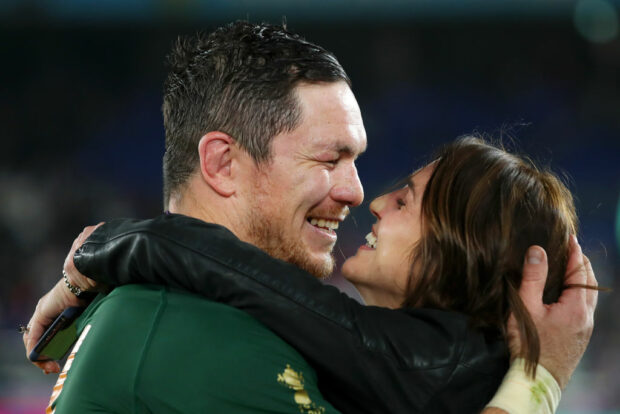
Much has changed since then with the pandemic sweeping the globe, how difficult a time has it been for everyone at Bath with wage cuts and players leaving?
It’s been hectic – and it’s all been happening while we’ve been in lockdown.
It’s not like you could chat to your buddies in training and bounce ideas off each other, we had the RPA coming at us, the club was coming at us and there’s the players’ perspective as well, but all of it had to be done at home through Zoom meetings or WhatsApp groups.
There’s a pandemic going on and you don’t really know what that means, so you are kind of taking everything as it comes and there’s a lot of volatility in the market. Players are dealing with things like, ‘Do I have a contract next year?’ or ‘I’ve just been hit with a 25 per cent wage cut, so suddenly it’s a big problem’. It’s no one’s fault, that’s just the reality of it and it’s been scary for all, not just rugby players.
Professional sport as it stands is a volatile industry and it’s not a good position to be in. You sign a nice contract that gives you a big wage but it’s a two or three-year deal and you’re banking on good performance, you can’t really get injured big time because two long-term injuries probably mean you won’t get signed again and there are youngsters coming through trying to take your place. That’s scary enough and then a fourth factor gets thrown in, which is the world shutting down! For guys to now not be able to finish the season at their clubs and put themselves on display for a new deal anywhere else, that’s really hard.
How do you see the way forward?
It’s been a wake-up call for everyone in the world, myself included. You think you’re safe and think things are under control, but suddenly it’s turned upside down.
Everyone knows about ‘rainy day’ funds or whatever you want to call it, but the amount of people who actually have a substantial sum in place to mitigate against unforeseen circumstances like a global pandemic is really small. That’s where you’ve got to have your ducks in a row by living a lifestyle that’s within your means, not up to or above your means, which is often what people do. They max-out their spending instead of having a strategy to have funds available for post-career circumstances like family, kids or starting up a business.
What we’ve learned is everything needs to be done with a plan in place to achieve maximum output during a relatively short career to put an individual in a relaxed and satisfied mode where they can focus on their sport in the knowledge that they’ll be okay if things go wrong.
Are you hoping to be able to contribute towards that change?
Absolutely. I’ve qualified as a financial advisor here in the UK and am in the process of setting up a firm, RMS Advisory, with a sports arm dedicated to professional athletes in terms of managing their finances, lifestyles and careers.
Sports people have a very short career and not everyone has the luxury of retiring on their own terms like me. Often guys and girls will get paid big lumps of money but a lot of these individuals need guidance on what to do with it.
When I was 22, I didn’t know what I wanted, but I was lucky enough to have financially literate people around me so that pointed me in the right direction. All rugby players should be able to retire in a relatively comfortable position so what I want to do is create something very specific to help athletes formulate life goals and then put in place a financial plan to achieve that.
Changing tack, you clocked up hundreds of thousands of miles criss-crossing the globe as a Test player, how important is it to define a global season?
Very important and if there was ever an opportunity to implement it, it’s now. There’s a rugby reset going on, no one knows whether they’re coming or going, but at the same time no one has to put a season aside to catch up and create a global season, so this is the time.
It’s difficult to balance everything between the different nations but, ultimately, a global season should be better for the game. In the Premiership, for example, to have guys missing for large parts of the season during internationals is not what clubs or fans want to see; you want the Premiership to have its best players on show for the majority of the campaign, so to co-ordinate all of that in the northern and southern hemispheres and separate internationals and club rugby is the way forward.
There’s a debate over when to do that, but January and February are pretty miserable when it comes to playing rugby here so why not bring the season forward and play the bulk of it during the summer and into December? Personally, I think that could work and you can still have the Six Nations early in the year.
As a player at the sharp end of Test and club rugby, can you give us a flavour of the toll the current season structure takes?
The game now is tougher, harder, faster and a lot more physical than it was a decade ago. Latterly, I trained harder than I did when I was 25 or 26 and your opponents are getting bigger and stronger as well. There’s obviously been an increase in injuries, something World Rugby are keeping an eye on through rule changes and the like, but we still play too much rugby.
For example, playing three tournaments simultaneously in England – Premiership, Heineken Cup and Premiership Cup – with Test rugby on top, as players you struggle to distinguish the difference in what you’re actually playing for. You’ll go from Premiership to Premiership Cup to Heineken Cup, then back to Premiership and then into the Six Nations, summer tours, Rugby Championship or Autumn Internationals.
It’s all a bit of a mess and if you just gave guys a break, especially in January and February, people would come back hungry for rugby. A few less games, give guys time to recover from knocks and people will get excited again and you can ramp it up.
Is it the treadmill of the current season structure that grinds people down?
Yes. Initially it’s exciting, but after a while reality sets in. There’s a lot of flying, a lot of travelling on buses and you’re in and out of hotels, plus it can be quite sporadic. Are you going to get selected for the national side? Will I get a holiday with my family or not? Sometimes injuries play a part and throw a spanner in the works. All those things are hard enough to deal with anyway before you even think about playing a game! Credit has to go to my family for supporting me down the years because sometimes it would be a case of them wishing me well and I’d be off to New Zealand, Australia, Argentina or wherever.
I know it sounds like a first-world problem when you’re flying in style and staying in top hotels, but I’m so looking forward to getting my weekends back. Sometimes, I’d literally roll from a Premiership game into a Test match, often on the other side of the world, and then at the end of that Test period I’d roll straight back into the Premiership with Bath. I do think there has to be some sort of season change and better agreements between all clubs and countries.
It looks like there’ll be a big shake-up in Super Rugby, how do you see the South African franchises fitting in to any new structure?
There’s been talk of Super Rugby becoming stagnant, which needs to be rectified. There’s also been talk of the South African teams joining the PRO14, which would be exciting and makes a lot of sense from a travel perspective. The game needs to evolve, it can’t just be the same forever and New Zealand are showing something at the moment with their domestic competition that was always there but was lost a little bit in southern hemisphere rugby.
South Africa prided itself for many years on Currie Cup rugby and that’s fallen away, but Super Rugby Aotearoa in New Zealand is showing that local matches can attract big crowds. If you somehow linked South Africa’s teams with the northern hemisphere while reviving that local interest, it could have a big future.

Back to Bath, how do you think DoR Stuart Hooper (below) and first-year skipper Charlie Ewels have handled the COVID-19 situation?
It’s been new territory for both of them and you’re making it up as you go along. You just can’t prepare for that. Stuart didn’t foresee himself talking to the boys about wage cuts or letting guys go and there’s also been this big rush to sign players up before June 18. None of it has anything to do with the actual rugby and it’s the same with Charlie, but they’ve both stepped up to the plate. They’re both very strong leaders who are fighting their corners and at the end of all this, I just hope rugby can take off again and continue to be the game it is. But there’s a lot of speculation around what the game here might look like with no one in the stadiums or whether there’ll be the money to put it back on the pedestal it was on, so everything’s up in the air.
Sam Burgess had a few choice words about Mike Ford and Bath’s Premiership final loss to Saracens in 2015, what’s your take on that?
That final was disappointing – so close but so far – and it’s definitely one that got away from us because we had our chances, but I haven’t actually seen Sam’s full interview, only some comments in the paper and the headlines that went with it. I don’t know what was said behind closed doors between those two guys and they obviously don’t see eye to eye and chose to handle it in different ways, but it’s not something I really want to get involved in and I’ll leave it at that.
Can you see Bath ending their 12-year trophy drought – and will you stay involved as a mentor?
I hope they’ll win something because I want this club to succeed as much as anyone. The club is very close to my heart and there’s a reason I’ve spent nine years here. There was other interest but I always chose to stay because I believe in this club and know it can succeed. It’s in the right hands and Stuart is putting together a very good team with huge rugby knowledge, led by Neal Hatley. As for future involvement, there’s nothing official but I’ll keep in touch with the players and I’ll be living in Bath, so if the academy guys or anyone else wants a chat, I’ll always be available.


British and Irish Lions
Charlie Elliott: The 17 backs I would select for the British and Irish Lions

British and Irish Lions
Charlie Elliott: The 21 forwards I would select for the British and Irish Lions squad

















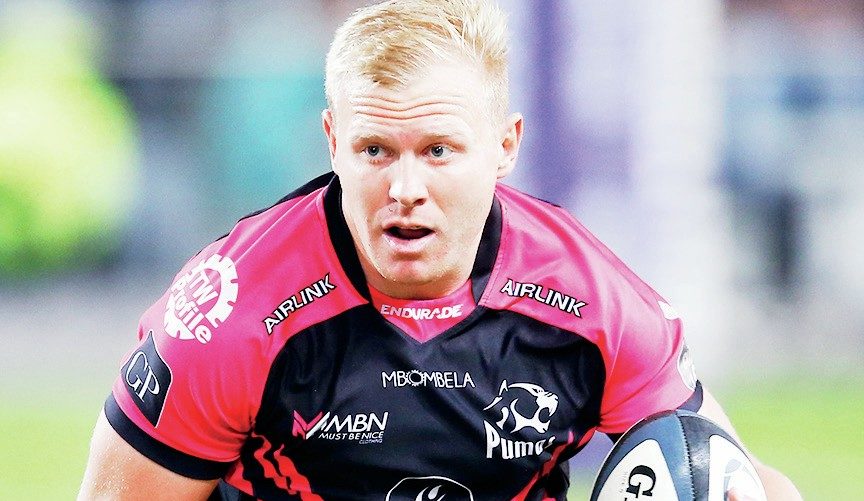
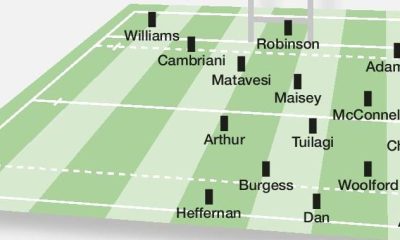

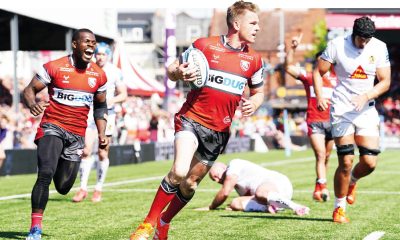

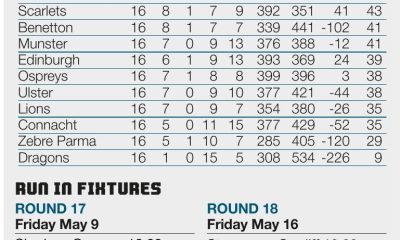

You must be logged in to post a comment Login